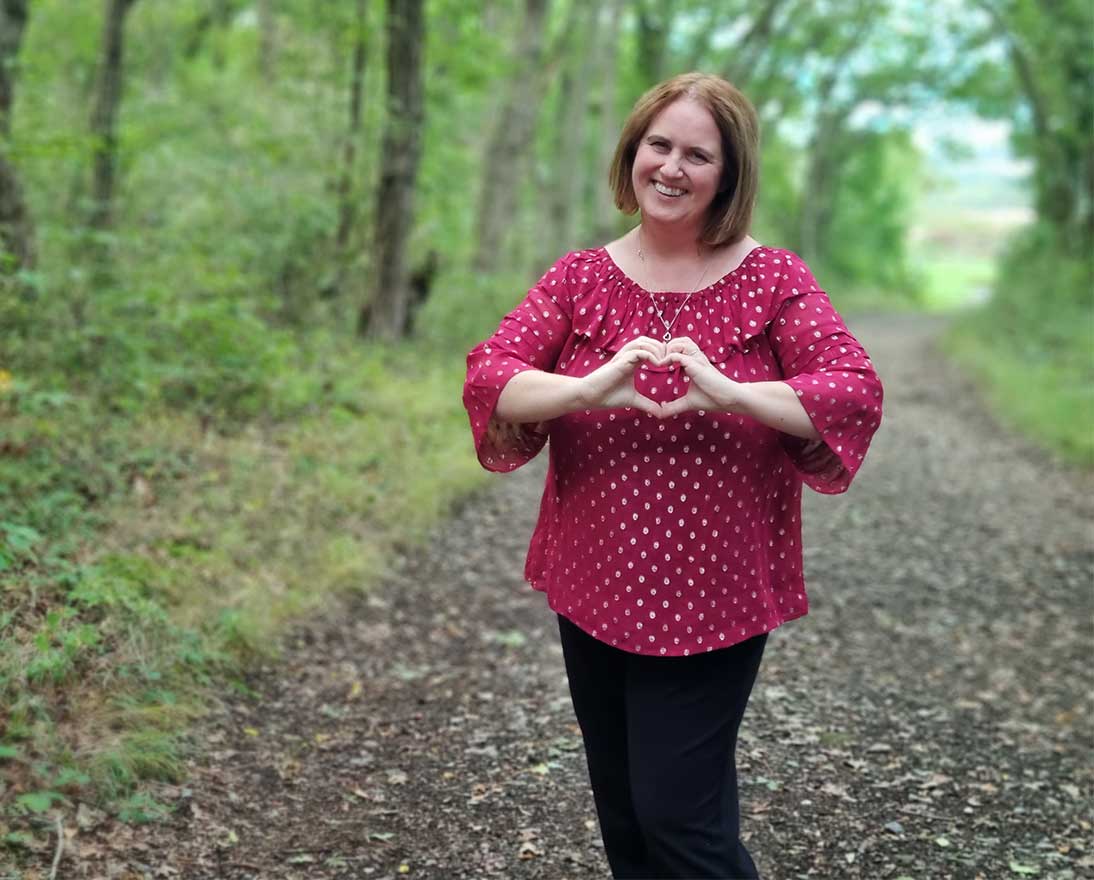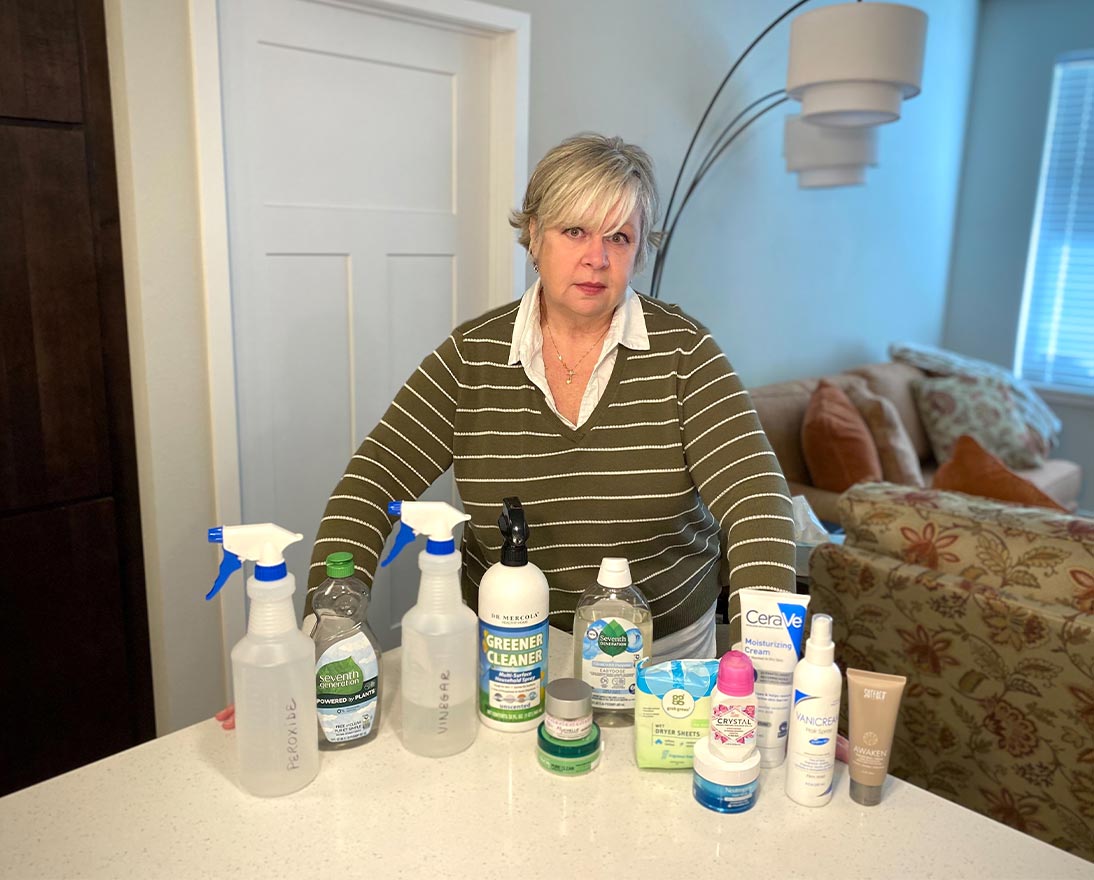What is it like to live with chronic pain?
PeopleArticleNovember 28, 2022
Zurich UK’s Rebecca Weare has suffered with chronic pain for almost half her life. She feels pain every minute of every day, and at times it is debilitating. But despite having no diagnosis or cure, it hasn’t stopped her from fulfilling her life goals.
Chronic pain is typically classed as pain that lasts for over three months. But Zurich UK employee Rebecca Weare has suffered with it for far longer.
“I’ve had pain every minute of every day for the last 11 years,” says the 24-year-old Rebecca.
She has a constant a pain in the center of her stomach. At times it is bearable, but the pain can spike and become totally debilitating. Rebecca is in pain as we speak, but she has developed a high pain threshold and coping mechanisms that allow her, in her own words, “to get used to it.”
The pain began when Rebecca was 14. “I had gone to sleep not in pain. But I woke up with a stomachache that was bad enough to keep me out of school. I thought I had a bug or had eaten something and that it would go away in a few days.”
But it didn’t. For three months Rebecca was off school and was confined to either lying in bed or on the sofa. “The doctors prescribed me different drugs, none of which had any effect. I had ultrasounds, blood tests, endoscopies and was on food exclusion diets. My mum was desperate and took me to various alternative treatments like hypnotherapy and Reiki. But after a year, the doctors were like: ‘We don’t know what it is. There’s nothing physically wrong with you and there’s nothing showing up in the tests.’ Within months the doctors went from ‘we want to cure the pain’ to ‘we want you to live with the pain.’”
Rebecca eventually returned to school, but she found the constant pain exhausting. “I used to be sporty,” she says. “Hockey, trampolining, sailing, cross-country running. All that stopped because everything became a massive effort as my energies were being sucked away by the pain.”
The burden of chronic pain
Chronic pain is one of the most common reasons adults seek medical care. In the U.S., for example, about one-in-five adults have chronic pain and 7.4 percent have high-impact chronic pain, described as pain that frequently limits life or work activities. In the U.S., chronic pain is a major cause of opioid dependence and poor mental health. It is also particularly common and problematic in older adults. But Rebecca is just 24 and looks like a healthy, young adult – proving that appearances can be deceptive.
Typically, the first step with chronic pain is to find and treat the cause. Chronic pain may have an obvious cause, such as arthritis or cancer. But when the cause cannot be pinpointed, then the most effective approach is a combination of medications, therapies and lifestyle changes.
Sadly, Rebecca has been unable to identify the cause of her pain. “It’s really frustrating,” she says. “After two years of weekly appointments with at least half a dozen different specialists I never got a diagnosis, a treatment plan or a name for my condition. I have just spent the last nine years dealing with it myself.”
The pain initially caused Rebecca’s mental health to deteriorate. “I was extremely anxious and on the verge of depression. I could have easily become suicidal, and I’m very fortunate that didn’t happen.”
But one treatment has helped Rebecca with her mental health and subsequently her stomach pain: cognitive behavior therapy (CBT). It is a talking therapy that helps manage problems by changing the way you think and behave. Stress exacerbates Rebecca’s pain, but the CBT helps her to manage stress and anxiety.
Rebecca also manages the pain by watching what she eats. After every meal she will have severe pain for about 30 minutes, but some foods will create unbearable pain spikes. Knowing what foods will cause excruciating pain is a lottery for Rebecca, but she says fatty, heavier foods generally cause the most problems. “I once ate a pork pie and it almost put me in hospital,” she recalls. But if pain does become agonizing, then lying down and applying a heat pack to her stomach can reduce its intensity.
Another coping mechanism is to distract herself from the pain through hobbies, particularly sewing – “I make pretty much all of my own clothes” – and embroidery. Studying for actuarial exams at Zurich UK also allows Rebecca to focus on something else rather than her pain. But the exams themselves cause stress and heighten her stomach pains. “Exam day is awful,” she says. “I can’t eat anything, or I’ll be in so much pain I will throw up. But if I don’t eat, I get pain from being hungry – but those pains are more bearable.”
Remarkably, Rebecca passed all her school exams and got into Oxford University where she came away with a first-class honors degree in mathematics. She currently lives with her parents in Romsey, in the south of England, and joined Zurich UK’s graduate scheme in September 2020 following a 10-week internship in 2019. Rebecca has not allowed her pain to hold back her social life and she has been dating her girlfriend, Sam, since the summer.
Coming out
At work, Rebecca is open about her sexual orientation – she identifies as lesbian – and plays a prominent role on the LGBTQ+ employee group Zurich Pride UK. Yet she is not comfortable revealing she has chronic pain and has only told her line managers in case she needs to work from home in case she’s in extreme discomfort.
But she has decided to “come out” in this article.
“I’m lucky in that I don’t need other people to make accommodations for me at work,” Rebecca says. “But I’d like to be able to talk to people about my pain. It’s not something that easily comes into conversation. But it’s part of my life and it is exhausting trying to hide it.
“Sometimes I have bad days,” she continues. “On those days I won’t be able to perform my best. But that’s OK, and I shouldn’t feel ashamed of it.”
It’s important to understand that Rebecca does not seek pity. She is just keen for people to understand that chronic pain is as much part of her identity as her sexual orientation, albeit a part of her identity she would be happy to lose.
Despite the pain, Rebecca remains surprisingly positive about her life and future. “If I never did anything because it would cause me pain, I’d never do anything at all,” she says. “I don’t want to be in a position where all I do with my life is lie on a sofa.
“For 11 years, the pain has not changed so I imagine I’m going to have it for the rest of my life. But so far I’ve achieved all my milestones even with the pain. So I’m very hopeful I can continue to do everything I would have done had I not been in pain.
“It’s pain. It sucks. But I can live with it.”



